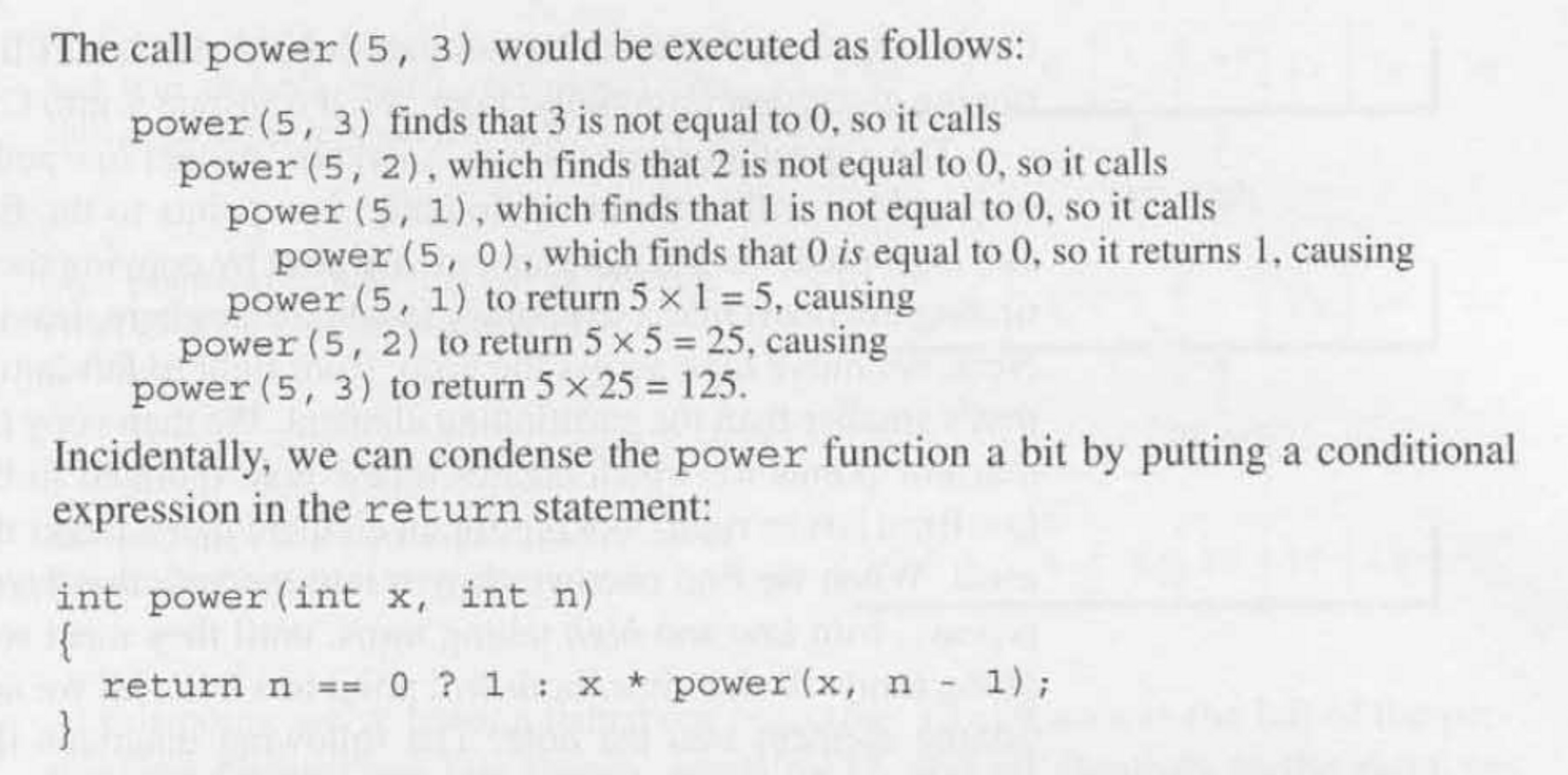Created: 2023-01-11 17:00
Status: #concept
Subject: Programming
Tags: C Function
Recursion
A Function is "recursive" when it calls itself.
It iteratively reduces the calculation into smaller parts until the base case is met: Divide & Conquer.
It often starts with a Base Case conditional statement, then a Recursive Call if it fails to meet the base case.
- the Base Case (aka Termination Condition) prevents the recursive function to do a stack overflow after infinitely calling new function instances.
Factorial Function
/* function that computes the factorial of {n} */
int fact(int n)
{
if (n <= 1) // Base Case
return 1;
else
return n * fact(n-1); // Recursive Call
}
Power Function
/* function that computes {x} raised to {n} */
int power(int x, int n)
{
if (n == 0) // Base Case
return 1;
else
return x * power(x, n - 1); // Recursive Call
}

References
- C Programming, A Modern Approach, 2nd Edition, Chapter 9.6